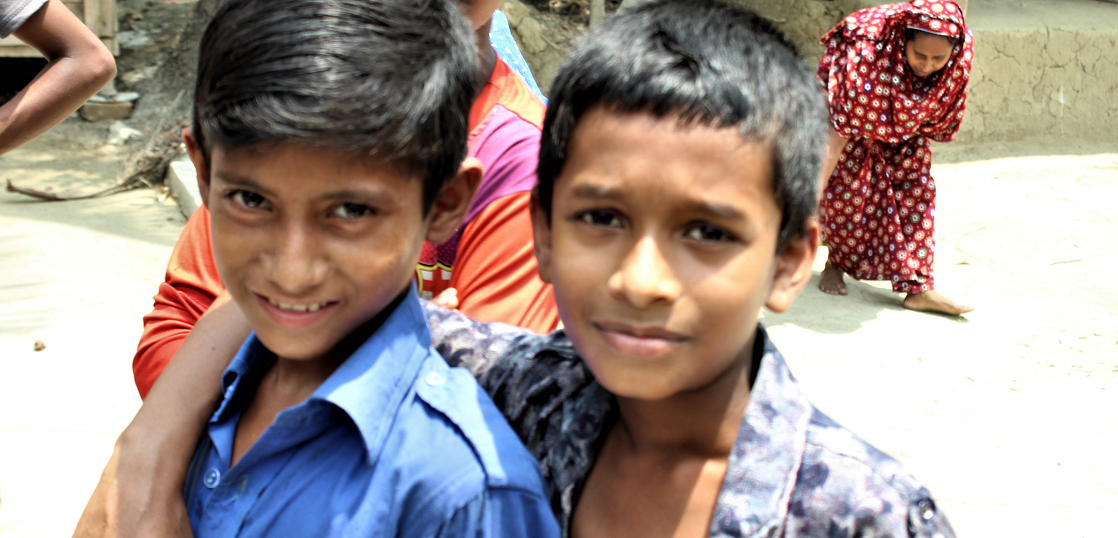This is the third report of a visit to the Republic of Bangladesh, which is said to be the poorest country next to India.
Members who arrived at Potoakari, which is called "Golden Bengal", went down the river from the capital city of Dhaka by a large boat and visited a local farmer who grows mung beans, which are the source of bean sprouts. Is the hospitality of the visit at the farmer? !!
* This is a visit to the company training for 3 nights and 4 days from April 25 to 28, 2019.
Click here for Part 1
Click here for Part 2
Landing on "Golden Bengal"
A few hours after leaving the port of Bangladesh, I woke up with the sound of "Gon! Gogon!" Echoing in the cabin.
When I got out of the cabin, it turned out that the sound just before the ship arrived at the pier was the sound of the hull hitting the pier.
Looking at the clock, the time is 6 am.
We arrived at Potoakari, the center of the countryside called "Golden Bengal".
After getting off the boat, we moved to the hotel that the members who often come to Potoakari always use, showered the sweat from the cruise, then moved to the local set meal shop and had breakfast for a day. I checked the schedule.
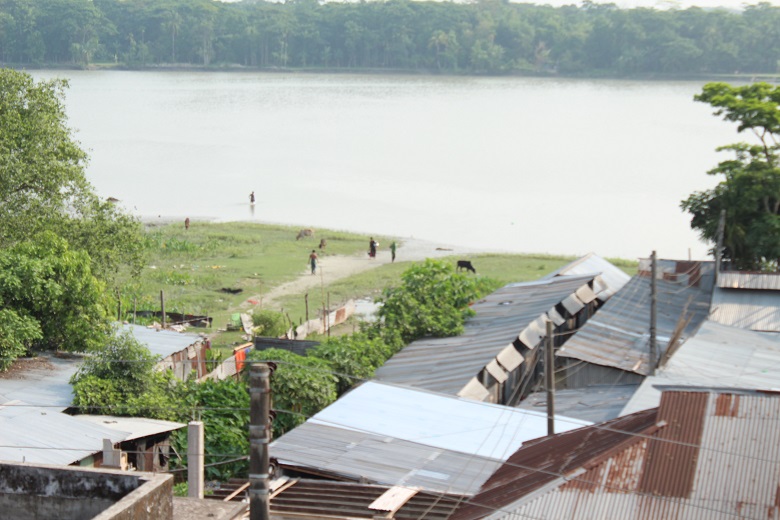
Today, we will visit the affiliated farmers of the "Mung Bean Project" * Euglena Co., Ltd. and Grameen Euglena Co., Ltd. are working on. First, head to the market in the center of Potoakari to see how mung beans are sold in the market!
* Mung bean project: Utilizing Japanese agricultural know-how, we will stably improve the productivity of mung beans, which are eaten locally as nutritious foods in Bangladesh, and not only sell them in the country but also supply them to Japan. Project to do. Euglena Co., Ltd. and Grameen Agricultural Foundation, led by Dr. Muhammad Yunus, who won the first Nobel Peace Prize in Bangladeshi, established a 50:50 capital ratio, and Grameen Euglena Co., Ltd. provides agricultural guidance locally.
First, go to the market! See the mung bean sales site
The move started around 8 am.
However, the temperature has already exceeded 30 degrees Celsius and the humidity is 80%. It's so hot and humid that I've just taken a shower and sweat oozes out ...
The Potoakari market is not like a large fresh market, but a corner of a town where privately owned shops are lined up like a Japanese shopping street.
Meat, vegetables, fish and spices are lined up in a row, making it an important place for local residents.
The decisive difference from the Japanese market is that there is no refrigerator because the power grid is not yet well maintained. Therefore, it is a prerequisite that the ingredients harvested on that day are basically bought on the same day. The hygiene is not as good as in Japan.
It was a spectacle to realize how the shopping situation in Japan is progressing.
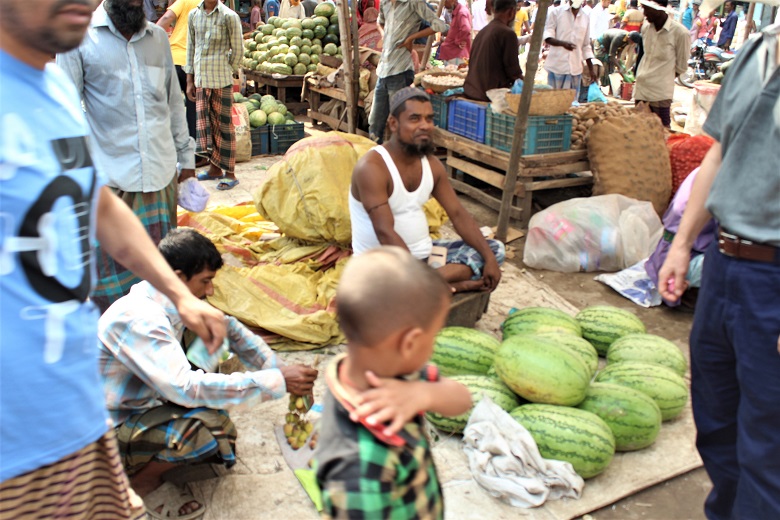
I noticed that there were a lot of green hills in the market.
Yes, this is mung bean.
We Japanese eat sprouts sprouted mung beans and vermicelli processed mung beans, but in Bangladesh we cook and eat the beans as they are. It is called "Dal" and is included in many staple food curries.
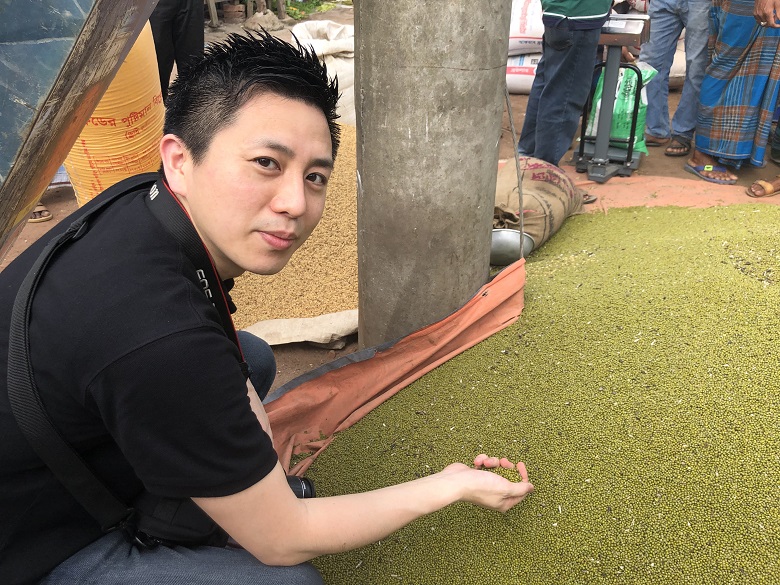
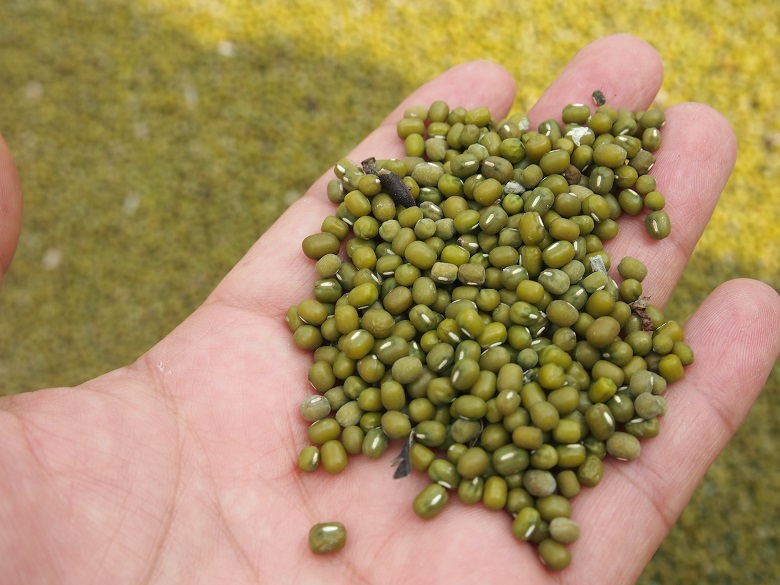
In addition, mung beans are more likely to be better sprouts with larger grains, and it is said that the one with less wrinkles in shape will germinate properly.
When I stopped in front of the mung beans, I realized that it was unusual for Japanese people to be in the market as a group, and when I realized that there were a lot of people around us!
I got a glimpse of the curious Bangladeshi temperament.
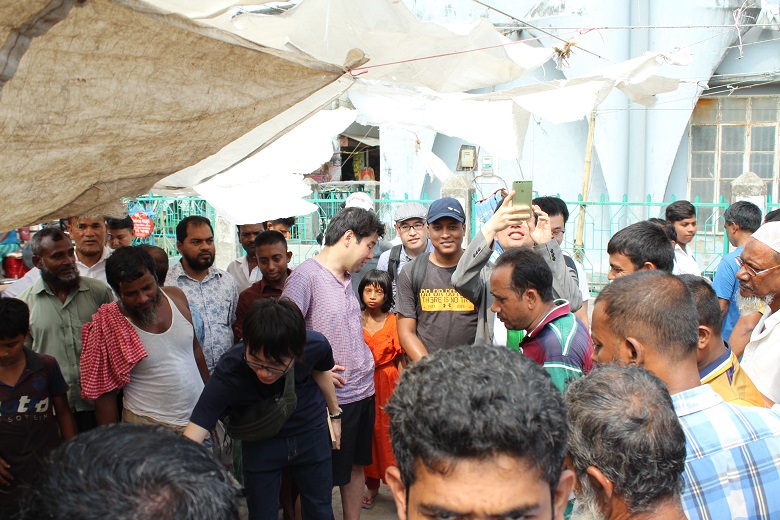
Visit the homes of farmers affiliated with the "Mung Bean Project"
After leaving the market, we will finally head to the farmer who grows mung beans.
It is less than an hour's drive from the town. The scenery of the windows along the way is always fields, bamboo, fields.
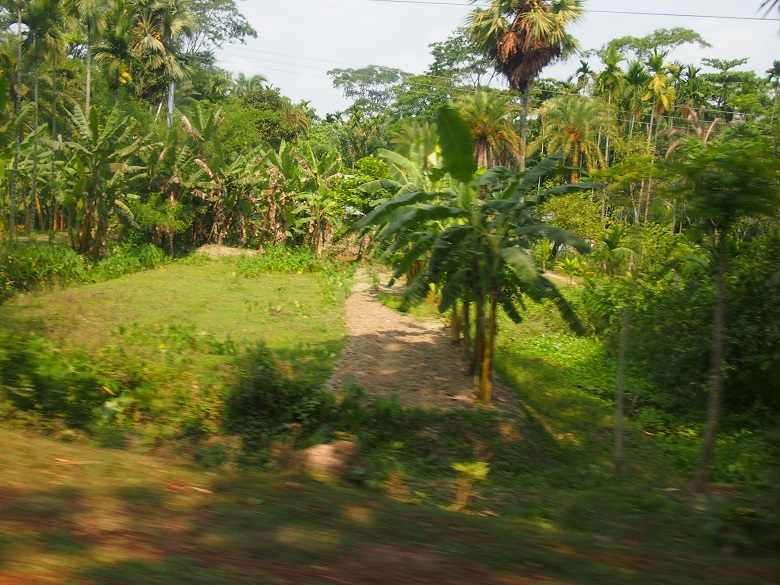
After about 30 minutes, the driver slowly stopped the car. There were no traffic lights and no traffic, so when I looked at the windshield, wondering "Why?", There was a big elephant blocking the road.
There is a person on top of the elephant, and it seems that he is manipulating the elephant.
As soon as this car stops, the elephant approaches and pushes its nose against the windshield. When we are disappointed, the driver gives out a small change and presents it through the window. Then the elephant dexterously grabbed the change with his nose and took it with him, paving the way for him. During this time, it was only a minute and a little event.
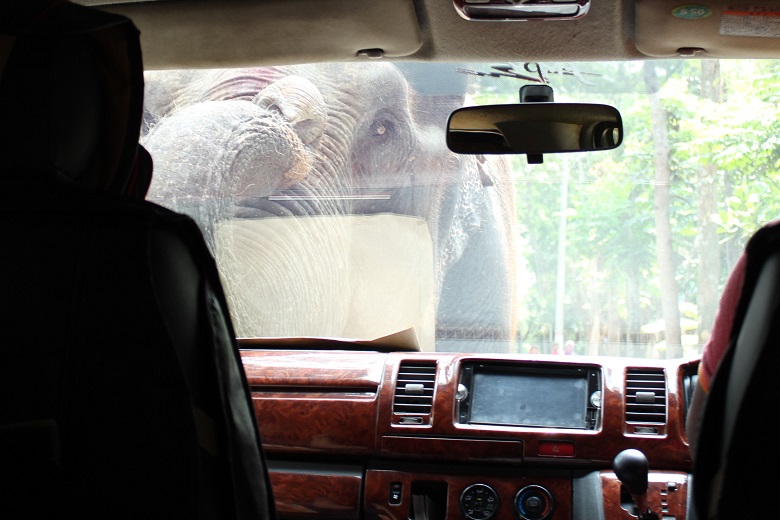
It seems that the act of blocking the road with elephants in this way is sometimes seen in the countryside of Bangladesh, and it is said that the members who often come to the site have encountered it once before. The change was taken, but I had the valuable experience of encountering a big elephant.
Helping to harvest mung beans
If you regain your mind and proceed for another 30 minutes, you will enter the countryside where the contrast between the thick forest and the fields continues.
In April, when I visited, many farmers grew mung beans, but due to double cropping and triple cropping, they grew rice and wheat depending on the season, and the fields looked like golden carpets before harvesting. You can see it. This is the origin of "Golden Bengal", the land of the original scenery of the Bangladeshi people's hearts.
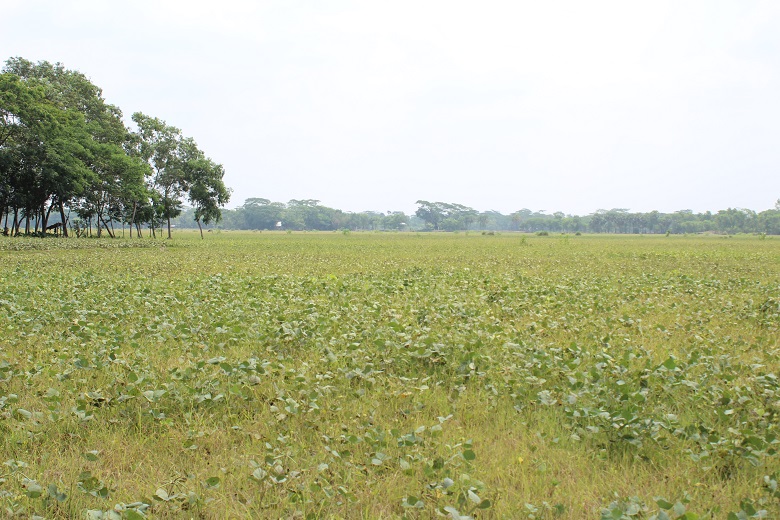
The vast fields are full of stretched grass. Mung beans have pods on the grass, and they are inside the pods.
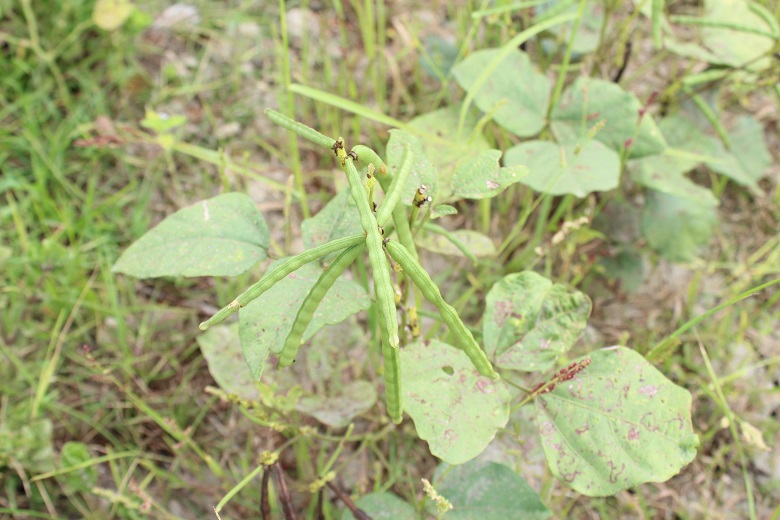
In China, there are many cases of harvesting using machines, but in Bangladesh, where mechanization has not progressed, beans are harvested by hand. There is also the advantage that the beans will not hurt if picked by hand.
When I visited, the women of the farm were harvesting. The pods are removed to make only beans, which are then dried in the sun and ready for shipment.
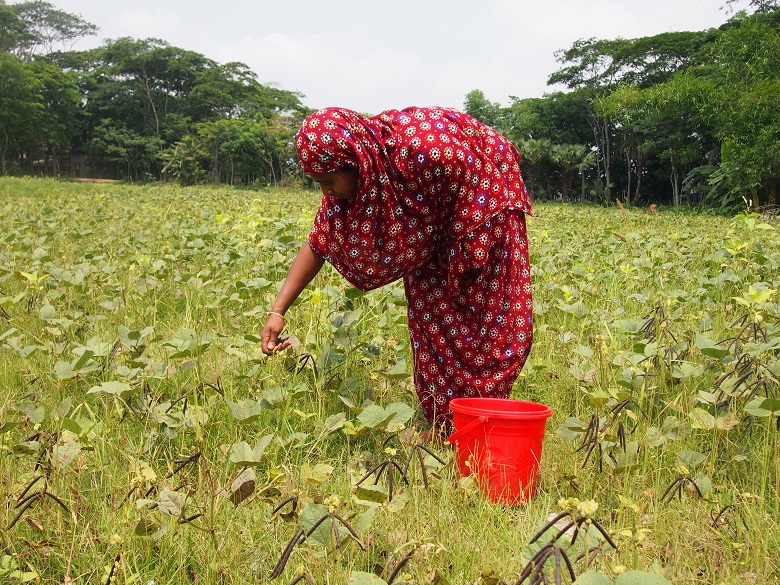
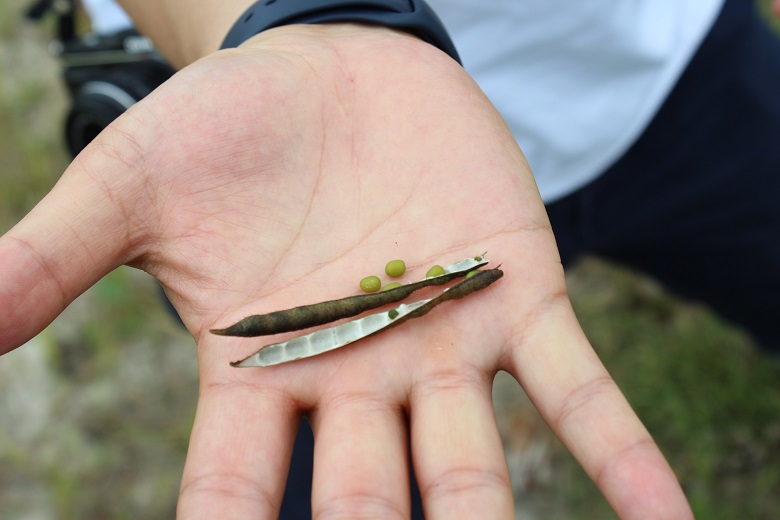
This time, I also helped with the harvest of mung beans. To be honest, it's hard to get down and keep collecting low-lying beans by hand. And above all, it's hot! On that day, the temperature had reached nearly 40 degrees Celsius.
By the way, there is nothing in the field that blocks the sunlight. Because I didn't bring a hat, I quickly got sweaty (a hat is essential for working in the hot sun).
It was an opportunity to experience the difficulties of Bangladeshi farmers. I thought I knew about social business through my knowledge, but the actual experience deepens my understanding.
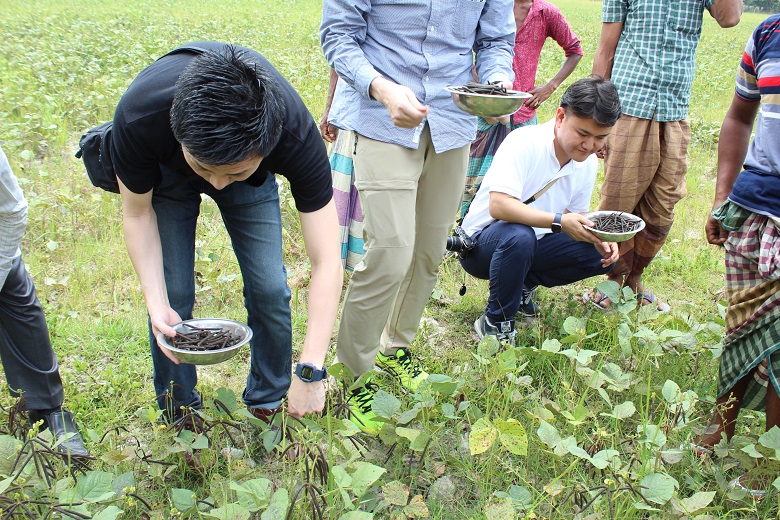
Feast on dal curry
After helping with the harvest, the farmers prepared curry for lunch to welcome us from Japan. Curry with mung beans, dal, and curry with other kinds of beans, are all delicious with spices not found in Japan!
We all ate all kinds deliciously.
It was a rare experience that coconut water came out as a drink with curry.
In Bangladesh, tap water cannot be drunk as it is, so it is common to drink water in PET bottles, but in rural areas, coconut juice is used instead of water. It had a slightly sweet taste of coconut, and it was a nice hydration for my sweaty body.
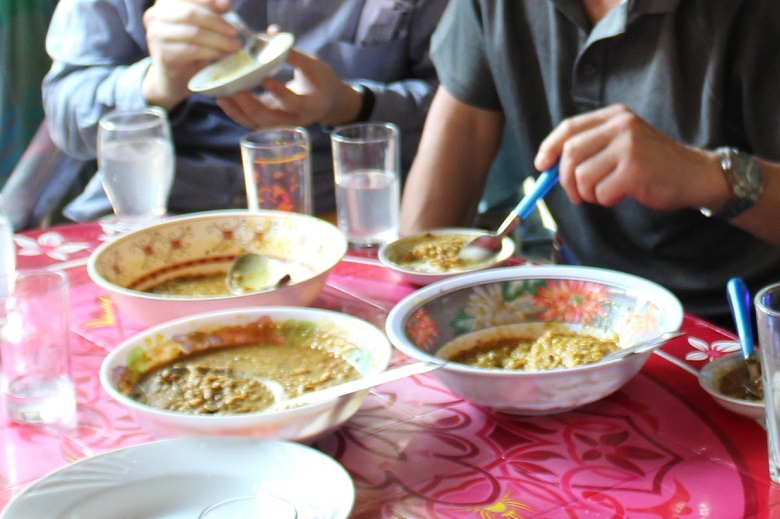
Say goodbye to the welcoming farmers, and then move on to the exchange that collects the mung beans harvested in the fields!
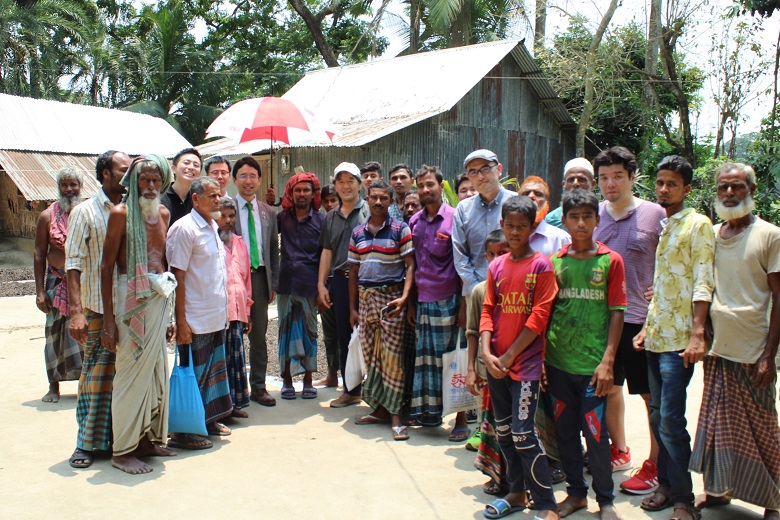
Mung bean exchange
It takes time and effort to go around each farm to buy mung beans ... Therefore, in the mung bean project, a leader who brings together a certain number of farmers is selected for each region, and the mung beans collected by those leaders. Are selected and purchased at the exchange. When purchasing, we check the size of the grains, the absence of wrinkles, the water content of the beans, etc., and sort them at the exchange.
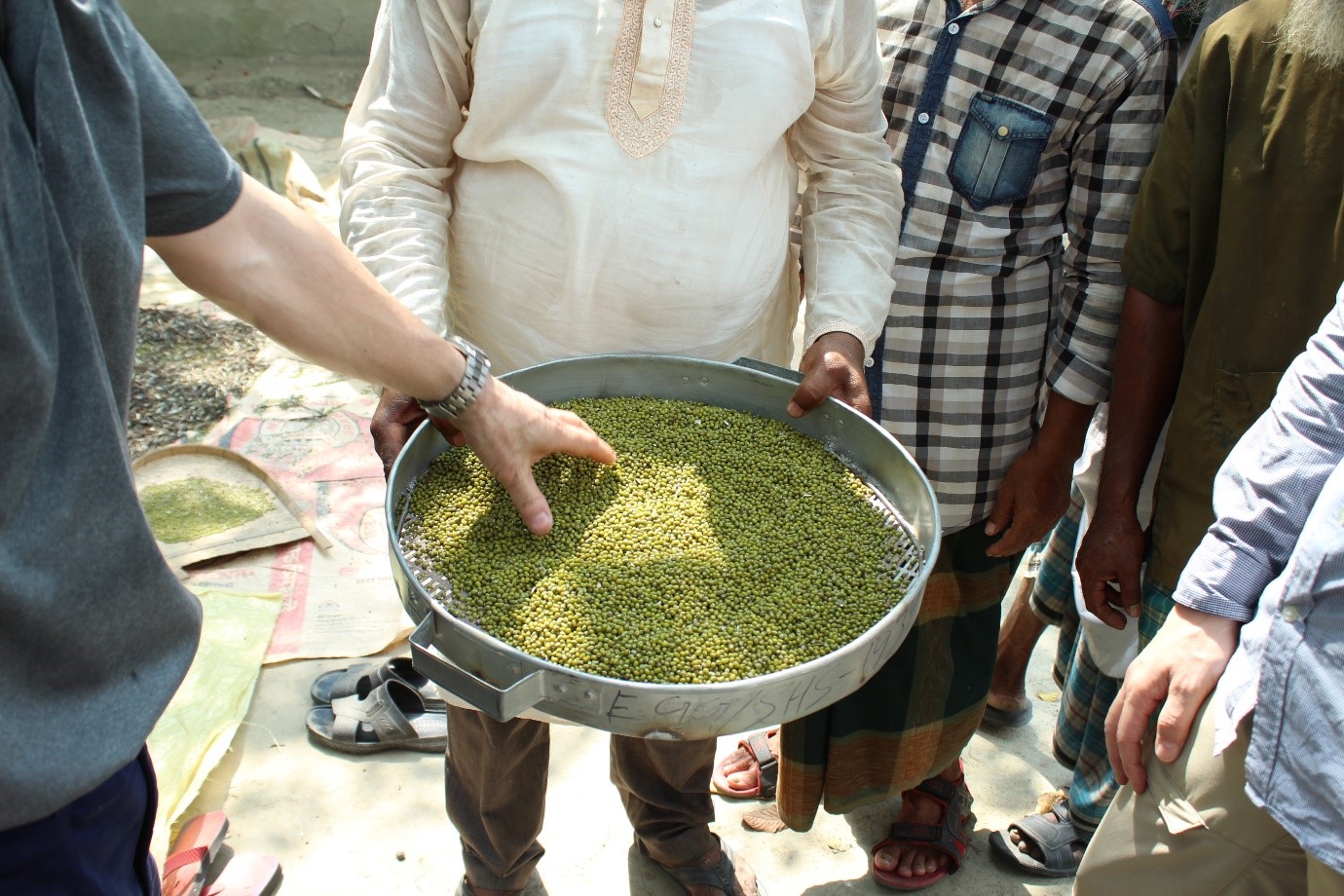
The mechanism for grain size selection is simple: put beans in a basket with small holes and shake them. Then only the small beans will fall down and the large beans will remain in the basket. It is a mechanism to determine what percentage of the total is, and if the large grain ratio is large, you can buy it at a high price. It seems that this measurement method is a device that allows measurement without electricity.
The method is very simple, but the ratio of large grains is obvious because the sorting is done in front of you.
Both the farmer and the exchange are satisfied with the purchase price and will accept the transaction. I realized that the business was established by developing such a small mechanism and ingenuity.
After that, I finally Our Potoakari branch of Grameen Euglena. This branch manages the number of contract farmers and the amount of purchases throughout Potoakari.
It was just the time when the local members were out in the fields, but I was deeply moved by the fact that like-minded friends worked far away in the countryside of Bangladesh. Races, jobs, and cultures are different, but the thoughts we value are the same. I was happy to have such a companion.
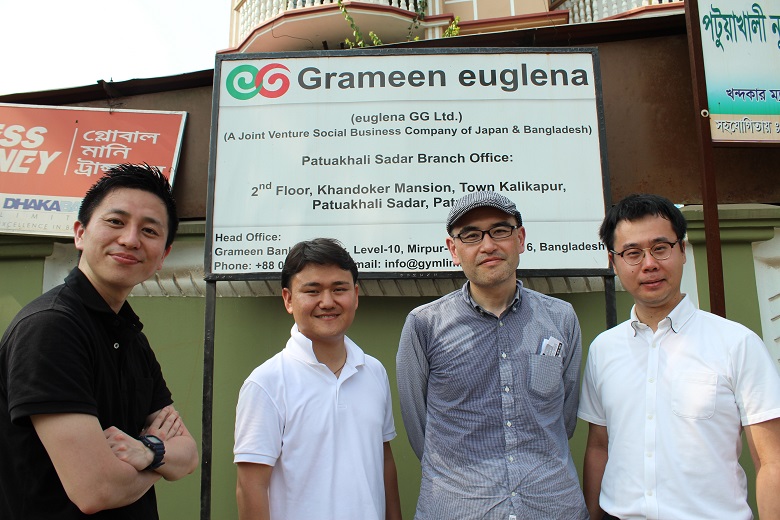
By the way, we are back in the center of Potoakari.
Next, take the same boat as the outbound route and head north to Dhaka this time. Against the backdrop of the setting sun over "Golden Bengal", I fell asleep in the cabin, thinking about the last day of my visit to Bangladesh the next day.
Next time is the last inning. We will report on the visit to the elementary school in Dhaka (GENKI program)!
# Bangladesh # SDGs # Food problems

